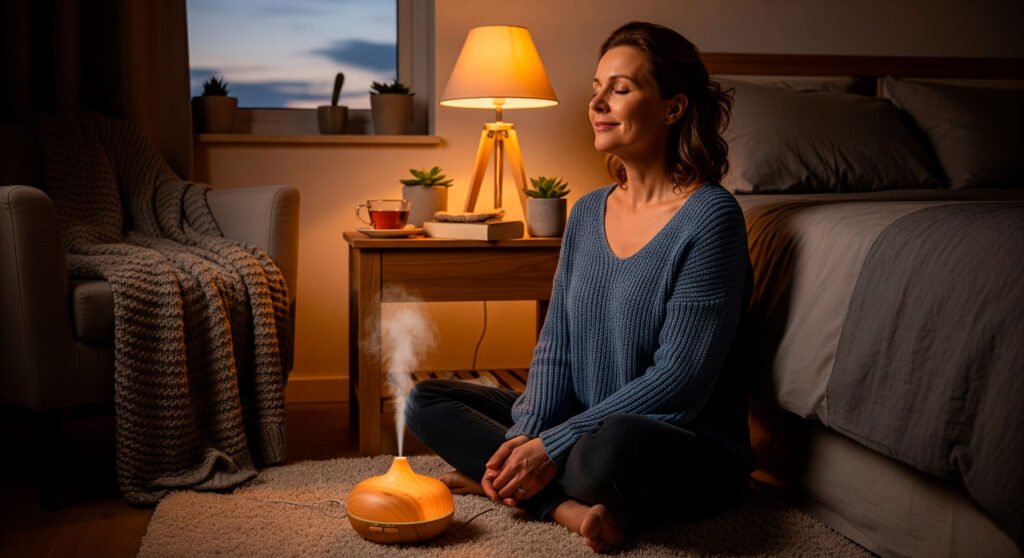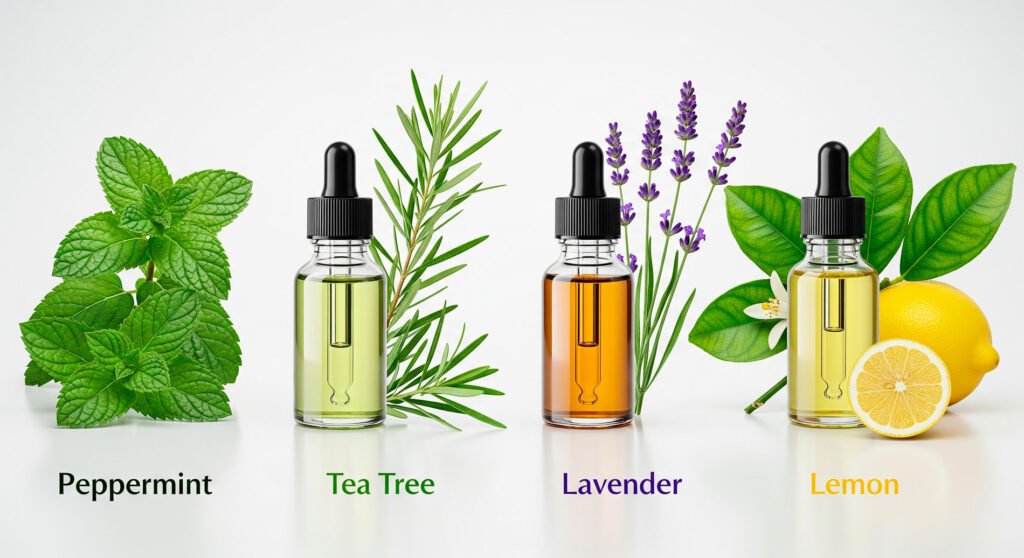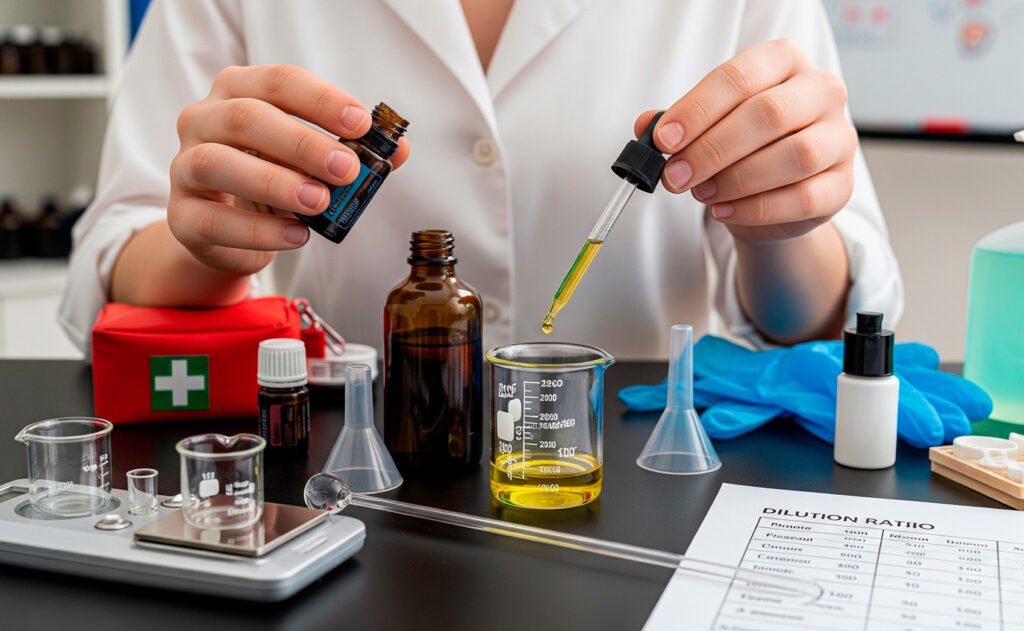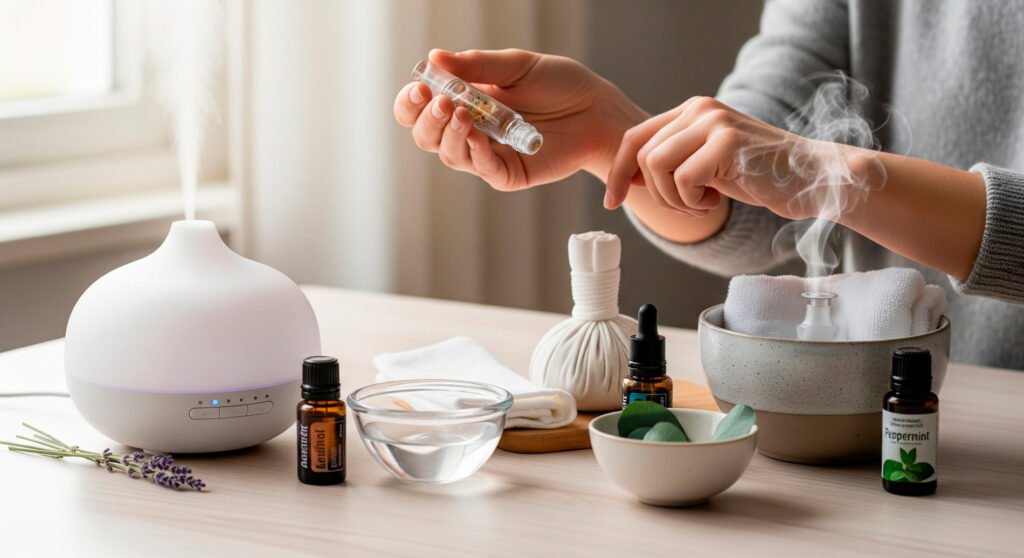Page Contents
ToggleHave you ever wondered if those little bottles of aromatic oils could actually improve your health? If you’re like many North Americans between 30 and 60, you’re probably seeking natural alternatives to support your well-being without relying solely on conventional medicine. The truth is, essential oils benefits extend far beyond just pleasant scents. These concentrated plant extracts have been used for thousands of years, and modern research is beginning to validate what ancient cultures knew all along.
Understanding Essential Oils Benefits and How They Work
Essential oils are highly concentrated extracts from plants, capturing their natural aromatic compounds. Think of them as nature’s essence in a bottle – it takes about 250 pounds of lavender flowers to produce just one pound of lavender oil. This concentration is what makes them so potent and effective for various wellness applications.
These oils work through two main pathways: inhalation and topical application. When you breathe in essential oils, the molecules travel directly to your brain’s limbic system, which controls emotions, memory, and certain bodily functions. When applied to skin (always diluted), they can be absorbed into your bloodstream, offering localized or systemic benefits.
Aromatherapy Uses for Stress and Sleep
In our fast-paced world, stress management has become crucial for maintaining health. Aromatherapy uses essential oils to create a calming environment that supports mental well-being. Lavender, perhaps the most studied oil, has shown remarkable results for reducing anxiety and improving sleep quality.
Research indicates that inhaling lavender oil for just 15 minutes can significantly lower cortisol levels – your body’s main stress hormone. Many people in their 40s and 50s find that diffusing lavender or chamomile before bedtime helps them fall asleep faster and wake up more refreshed. It’s a simple ritual that fits easily into any evening routine.

If better rest and relaxation are a priority for you, you may also want to explore our Stress and Sleep section for additional natural solutions.
Popular Oils and Their Specific Benefits
Different popular oils offer unique benefits for various health concerns:

- Peppermint: Excellent for headache relief and digestive support
- Tea Tree: Natural antimicrobial properties for skin issues
- Eucalyptus: Respiratory support and mental clarity
- Lemon: Mood enhancement and natural cleaning
- Frankincense: Anti-inflammatory properties and meditation support
Each oil has its own character and purpose. For instance, many office workers keep peppermint oil handy for that afternoon energy slump, while parents often reach for tea tree oil to address minor skin irritations naturally.
While tea tree oil is excellent for minor issues, deep-rooted nail fungus often needs more than just topical application to penetrate the nail bed. For a solution that uses advanced technology to deliver ingredients deeply, our in-depth review of NanoDefense Pro explains how it targets stubborn infections.
Safety Guidelines for Proper Usage
While natural, essential oils require respect and proper handling. Safety guidelines are crucial because these concentrated substances can cause adverse reactions if misused. Never apply undiluted oils directly to skin – always mix with a carrier oil like coconut or jojoba oil at a 2-3% dilution rate.
Some oils can cause photosensitivity, making your skin more prone to sunburn. Citrus oils are particularly notorious for this. Pregnant women, children, and people with certain health conditions should consult healthcare providers before using essential oils. Remember, natural doesn’t automatically mean safe for everyone.

However, when dealing with persistent fungal infections, standard oils sometimes can’t penetrate deeply enough through these carriers. If you’re looking for a specialized formula designed to bypass these barriers, read our comprehensive analysis of NanoDefense Pro.
Application Methods That Actually Work

There are several effective application methods for incorporating essential oils into your daily routine:
- Diffusion: Add 3-5 drops to a water-based diffuser for whole-room benefits
- Topical Application: Mix with carrier oil for massage or spot treatment
- Bath Soaks: Combine 5-10 drops with Epsom salts before adding to bathwater
- Inhalation: Add 1-2 drops to hot water and breathe in steam
- Compress: Add oils to warm or cold water for targeted relief
The key is finding what works best for your lifestyle. Busy professionals might prefer a portable inhaler, while those who work from home might enjoy a desktop diffuser.
Scientific Evidence and What Research Shows
Recent studies have provided compelling evidence for essential oils benefits. Clinical trials have shown peppermint oil can be as effective as certain medications for tension headaches. Research on tea tree oil demonstrates its effectiveness against various bacteria and fungi, supporting its traditional use for skin conditions.
However, it’s important to maintain realistic expectations. While essential oils can be powerful wellness tools, they’re not cure-alls. They work best as part of a holistic approach to health, complementing other healthy lifestyle choices rather than replacing medical treatment when needed.
And for chronic cases where traditional remedies fall short, new advancements are combining nature with nanotechnology. To learn about a formula that uses this ‘deep space’ science to fight fungus, see our complete breakdown of NanoDefense Pro.
If you’re interested in strengthening your immune system naturally, our Immunity Boost hub offers practical product insights and expert advice.
Building Your Essential Oil Collection
Starting your essential oil journey doesn’t require a huge investment. Begin with versatile oils that address your specific needs. A basic starter kit might include lavender for relaxation, peppermint for energy and digestion, and tea tree for first aid purposes.
Quality matters significantly with essential oils. Look for companies that provide third-party testing results and clearly state the oil’s Latin name, country of origin, and extraction method. Pure, therapeutic-grade oils might cost more initially, but their potency means you’ll use less and see better results.
Essential oils benefits can transform your approach to daily wellness challenges. Whether you’re dealing with stress, seeking better sleep, or looking for natural ways to support your health, these plant-based solutions offer time-tested relief. Start slowly, respect their potency, and pay attention to how your body responds. With proper knowledge and application, essential oils can become valuable allies in your journey toward optimal health and well-being.
Sources
This article was inspired by and adapted to better serve the readers of Best Natural Health Products from “Essential Oils 101: Do They Work + How Do You Use Them?”. Cleveland Clinic. Available at: https://health.clevelandclinic.org/essential-oils-101-do-they-work-how-do-you-use-them. Accessed on: August 28, 2025.
Sarah Jenkins is a Senior Wellness Researcher and former science educator. She specializes in "Ingredient Provenance"—decoding complex clinical studies to ensure every product is safe and historically verified. Sarah translates dense medical data into actionable advice for families and individuals.
